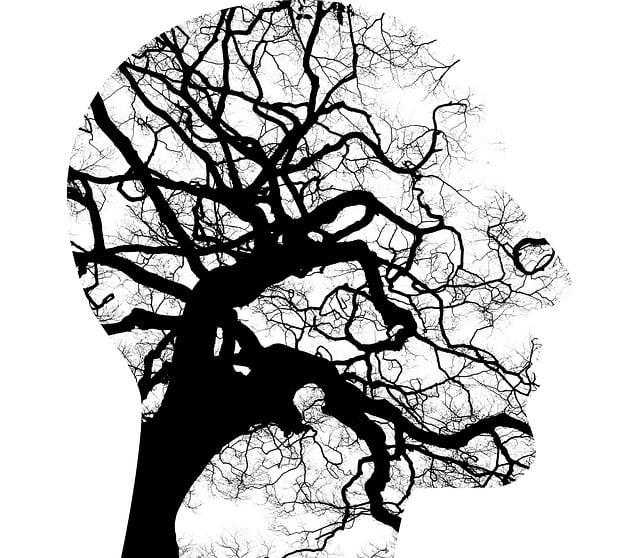Mental health professionals treating adult gamblers face unique challenges requiring a sophisticated balance between evidence-based interventions and compassion. They must address complex psychological issues like depression, stress, and trauma exacerbated by gambling's high-stakes nature. By integrating compassionate support with practices like Mind Over Matter principles, therapists can foster resilience against relapse, targeting both gambling behavior and its roots. Structured clinical tools, risk assessment scales, and personalized treatment plans are essential for effective therapy. Stress management workshops enhance therapist well-being, while comprehensive risk protocols, open communication, and public awareness campaigns mitigate risks. Case studies provide real-world insights, emphasizing cultural sensitivity and stress reduction methods for successful Therapy for Adults Gambling outcomes.
Mental health professionals face unique risks when treating individuals with gambling addictions. This article explores the intricate landscape of risk assessment, offering a comprehensive guide for practitioners navigating adult gambling therapy. We delve into the specific hazards these professionals encounter, from burnout to ethical dilemmas. Through an examination of assessment tools and strategies, we provide practical insights for mitigating risk in clinical settings. Real-world case studies highlight the importance of proactive measures, ensuring safe and effective treatment for both therapists and their clients.
- Understanding the Unique Risks in Adult Gambling Therapy
- Identifying Potential Harms for Mental Health Professionals
- Assessment Tools and Techniques for Safe Practice
- Strategies to Mitigate and Manage Risk in Clinical Settings
- Case Studies: Learning from Real-World Scenarios
Understanding the Unique Risks in Adult Gambling Therapy

The unique risks inherent in adult gambling therapy demand a nuanced approach from mental health professionals. While traditional therapeutic models focus on cognitive and behavioral changes, addressing the complex interplay between addiction and mental health requires an understanding of the underlying psychological mechanisms. Therapy for adults gambling often involves confronting deep-seated issues such as depression prevention, stress management, and trauma resolution, which can be exacerbated by the high-stakes nature of gambling.
Professionals in this field must be adept at integrating compassion cultivation practices alongside evidence-based interventions, like Mind Over Matter principles. This dual approach not only helps clients manage their addiction but also fosters resilience against potential relapses. By recognizing the delicate balance between providing effective treatment and managing personal risks, mental health professionals can offer tailored support that addresses both the gambling behavior and the underlying psychological vulnerabilities.
Identifying Potential Harms for Mental Health Professionals

Mental health professionals often find themselves at a unique intersection where they must balance the benefits of therapy with potential harms. When working with adults who gamble, this dynamic becomes even more complex. Gambling addiction is a mental illness that can deeply impact an individual’s life, and therapists must be vigilant in identifying risks associated with treatment. One significant harm to consider is the potential for clients to act out their addiction during or after therapy sessions. This could manifest as impulsive behavior, financial decisions made without regard for consequences, or even aggression towards the therapist.
Building confidence and resilience in both themselves and their clients is crucial to mitigate these risks. Therapists can help patients develop strategies to manage gambling urges and support them in understanding the impact of their addiction. Additionally, mental illness stigma reduction efforts are essential to creating a safe space for adults struggling with gambling issues. By fostering an environment free from judgment, therapists encourage open communication and facilitate more effective treatment outcomes.
Assessment Tools and Techniques for Safe Practice

Mental health professionals must be equipped with a range of assessment tools and techniques to ensure safe practice, especially when dealing with complex cases like therapy for adults gambling. One effective method is utilizing structured clinical interviews that help identify specific symptoms and disorders, allowing for more accurate diagnoses. These interviews provide a standardized approach, enabling professionals to assess risk factors related to gambling addiction and plan appropriate interventions.
Additionally, risk assessment scales and questionnaires tailored to behavioral addictions, such as those targeting problem gambling, can offer valuable insights into a client’s severity and potential hazards. Integrating these tools with clinical expertise ensures comprehensive evaluations, facilitating the development of personalized treatment plans. Moreover, stress management workshops organized by professional organizations can empower therapists to manage their own well-being, thereby enhancing their ability to support clients in overcoming challenges related to anxiety relief and stress management.
Strategies to Mitigate and Manage Risk in Clinical Settings

Mental health professionals are often exposed to complex and sensitive situations, making risk assessment a critical component of their practice. To mitigate and manage these risks effectively, several strategies can be employed in clinical settings. One key approach is integrating comprehensive risk management protocols into everyday operations, ensuring consistent evaluation and intervention planning. This involves regular monitoring of patient progress, identifying potential triggers, and implementing tailored safety plans.
Additionally, fostering an environment of open communication encourages patients to share concerns or thoughts related to gambling or other at-risk behaviors. Training staff on recognizing early warning signs and providing appropriate therapy for adults with gambling issues can significantly enhance these efforts. Public awareness campaigns focused on mental health and depression prevention also play a crucial role in promoting a culture where seeking help is normalized, enabling professionals to address risks proactively and support individuals in their recovery journeys.
Case Studies: Learning from Real-World Scenarios

Case studies play a pivotal role in risk assessment for mental health professionals, offering valuable insights from real-world scenarios. By examining specific instances and outcomes, practitioners can identify potential hazards and develop effective strategies to mitigate risks. For instance, a case study focusing on an individual struggling with therapy for adults gambling disorders highlights not only the challenges of treatment but also the success stories that emerge when cultural sensitivity in mental healthcare practice is seamlessly integrated. This approach ensures tailored interventions that consider the unique backgrounds and experiences of patients, enhancing the effectiveness of depression prevention measures.
Additionally, these case studies shed light on the importance of stress reduction methods in managing complex cases. Mental health professionals can learn from successful applications of such techniques, incorporating them into their practices to better support clients facing various mental health issues. By drawing on real-life experiences, they can create more robust risk assessment frameworks that address not only specific disorders like gambling addiction but also the broader spectrum of psychological well-being concerns.
Mental health professionals working with adults suffering from gambling addictions face unique risks, as highlighted throughout this article. By understanding and identifying potential harms, utilizing appropriate assessment tools, implementing effective risk management strategies, and learning from case studies, practitioners can ensure safer practice environments. Adopting these measures is vital to protect both clients and therapists in the delicate field of adult gambling therapy.










